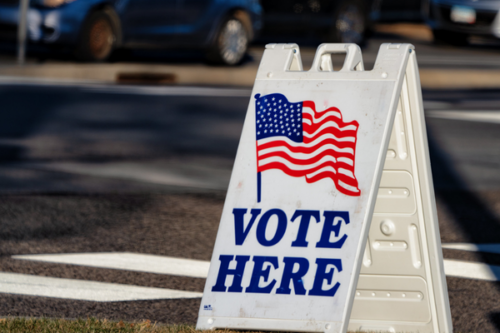What kind of democracy do legislators want? This question was at the center of a recent discussion with Melody Crowder-Meyer, associate professor of political science at Davidson College, as part of the American Politics Speaker Series. Co-hosted by the Ash Center for Democratic Governance and Innovation and the Center for American Political Studies, Crowder-Meyer discussed her recent work exploring legislators’ democratic orientations.
Democracy’s resilience depends on both citizen support and the support of political elites. With the rise of populism and increasing polarization, Crowder-Meyer presented findings from a comparative study investigating how political elites think about democratic governance and what shapes those views. The final research paper, co-authored with Leonard Häfner, Claudia Landwehr, and Lea Stallbaum, draws on original surveys conducted in 2022 among German legislators and in 2023 among U.S. legislators.
While most studies have focused on a single country or comparisons within Europe, the authors’ research took a unique transatlantic perspective by examining both the United States and Germany, Europe’s largest democracy. While Germany operates as a parliamentary democracy and the United States follows a presidential system, the countries share key characteristics. Notably, however, Germany is currently rated as a stable democracy, while the POLITY index has reclassified the United States as a non-democracy under President Donald Trump’s second term.
Against this backdrop, the authors asked, “If we do find differences in legislators’ process preferences both within and between the two countries, how can we explain these differences?” Based on existing research and theoretical expectations, they came up with several hypotheses to test the balance between legislators’ instrumental interests (such as re-election) and their preferences for democratic processes.
Next, Crowder-Meyer explained, the team developed a survey measuring attitudes along a continuum, from people-centered to elite-centered democracy. They used two largely identical surveys and invited all legislators in both countries to respond. The final sample included 492 German state and federal legislators and 361 U.S. state legislators (a 20.4% response rate in Germany and a 5.6% response rate in the United States). The survey included questions about the role of citizens in decision-making, the legitimacy of elites in governance, and the balance between public opinion and political representation. Respondents were asked to rate their agreement with statements like “Legislators should follow their conscience, even if a majority of voters happens to have a different opinion,” “In a democracy, there should be no elites,” and “There should be opportunities for citizens to express their opinions in deliberative citizen forums.”
The findings revealed marked differences in democratic preferences between U.S. and German legislators. German legislators, operating within a more stable, coalition-based parliamentary system, were evenly distributed across the spectrum, with most centered around the midpoint of the scale. In contrast, U.S. legislators overwhelmingly favored people-centered processes. Only 12.5% placed themselves on the elite-oriented side, a stark contrast that Crowder-Meyer linked to the United States’ more polarized political environment.
Party affiliation also shaped responses across the two countries. In Germany, center-right parties (CDU/CSU and FDP) favored elite-centered democracy, the center-left (SPD and Greens) hovered near the midpoints, and both extreme parties (AfD and Die Linke) leaned more people-centered. In the United States, however, legislators across both parties tended to embrace people-centered views, suggesting a common commitment to public-facing governance.
Crowder-Meyer noted that despite these tendencies, preferences were not dictated only by party ideology. In fact, U.S. and German legislators’ attitudes appeared to be shaped by similar structural factors, such as control of government, seniority, majority status, and electoral safety. Specifically, legislators with more power, resources, and/or perceived job security were more likely to favor elite-centered governance, while newer legislators were less likely to do so. In the United States, those in electorally safe districts or in the majority party were especially inclined to adopt elite-oriented views.
These patterns suggest that shifts in party control and substantial legislative turnover can meaningfully influence how elected officials approach democracy. After elections when large numbers of new legislators take office, legislative bodies may become more people-centered, favoring transparency and public engagement over governance behind closed doors. As democracy continues to face pressure from both populist movements and institutional challenges, understanding these elite preferences is crucial for ensuring stable and resilient democratic regimes.







